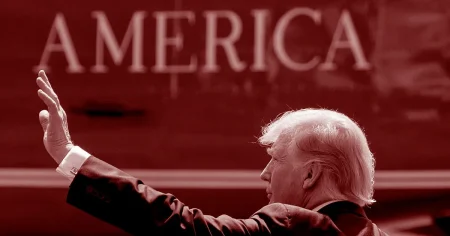The culmination of high school, a milestone signifying years of academic dedication and personal growth, has evolved into an extravagant spectacle. Champagne breakfasts, lavish prom nights, and elaborately decorated flatbed trucks, complete with booming sound systems, swirling smoke, cascading confetti, and copious amounts of beer, have become ubiquitous symbols of this rite of passage. Topping it all off, literally and figuratively, is the graduation cap, once a simple symbol of achievement, now a designer accessory commanding a hefty price tag. This escalation of celebratory expenses raises the question: when does the pursuit of a memorable graduation cross the line into excess and overshadow the true significance of the achievement?
The transformation of graduation celebrations from modest gatherings to elaborate productions mirrors a broader societal trend towards amplified experiences. The influence of social media, with its relentless focus on visually compelling content, plays a significant role. Students are driven to create Instagram-worthy moments, fueled by the desire for online validation and the pressure to keep up with their peers’ increasingly extravagant displays. The fear of missing out (FOMO) drives the demand for bigger, better, and more Instagrammable celebrations, perpetuating a cycle of escalating costs and competitive extravagance. This pressure can overshadow the genuine accomplishment of completing high school, shifting the focus from academic achievement to the spectacle of the celebration.
The financial burden of these elaborate celebrations is a growing concern for many families. The cost of prom dresses, tuxedos, tickets, transportation, and after-parties can quickly add up. Add to this the expense of decorating the graduation truck, purchasing copious amounts of alcohol, and hiring DJs or entertainment, and the total cost can easily reach thousands of dollars. The pressure to participate in these events, coupled with the escalating costs, can create undue stress for families, particularly those with limited financial resources. This financial strain can detract from the joy of the occasion and create an environment of exclusion for students whose families cannot afford the extravagant expenses.
The escalating cost of graduation caps adds another layer of financial burden. Once a simple and standardized item, graduation caps have become increasingly elaborate, featuring personalized designs, embellishments, and premium materials. The price of these customized caps can reach several hundred dollars, a significant expense on top of the other graduation-related costs. While some students embrace the opportunity to express their individuality through their cap designs, others feel pressured to purchase an expensive cap to avoid feeling left out. This trend raises questions about the appropriateness of turning a symbolic item into a costly fashion statement and the potential for creating further socioeconomic disparities within graduating classes.
The increasing emphasis on extravagant celebrations also raises concerns about the message being sent to graduating students. The focus on material possessions, outward appearances, and social media validation can overshadow the importance of academic achievement, personal growth, and future aspirations. The celebration becomes less about recognizing hard work and accomplishment and more about showcasing wealth and social status. This shift in focus can inadvertently trivialize the significance of education and send the wrong message about the values and priorities that should be emphasized as students embark on their next chapter.
Ultimately, the question remains: how can we reclaim the true meaning of graduation and shift the focus back to celebrating academic achievement and future potential? A conscious effort to prioritize substance over spectacle is essential. Schools, parents, and students themselves can play a role in fostering a culture that values academic accomplishment and personal growth over extravagant displays of wealth. Encouraging more modest celebrations, emphasizing the importance of financial responsibility, and promoting alternative ways to celebrate graduation can help create a more inclusive and meaningful experience for all students. By focusing on the true significance of this milestone, we can ensure that graduation remains a celebration of achievement, not a competition for the most extravagant display.














